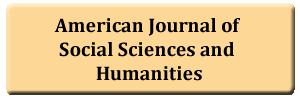Exploring the role of teachers and the community in the inclusion of migrant students in the contemporary Greek school context
DOI:
https://doi.org/10.55284/ajel.v9i2.1222Keywords:
Challenges, Community’s role, Migrant students’ inclusion, Practices, Teacher’s role, Secondary education.Abstract
The present research study seeks to examine secondary teachers’ perceptions regarding migrant students’ inclusion in the contemporary Greek school environment. Qualitative methodology was followed, and a semi-structured interview tool was used to collect the necessary data. Using the convenience sampling technique, eight teachers participated, and the data were analyzed through thematic analysis. The findings emphasize the important role of teachers, since they shape the classroom environment, provide emotional support and enhance academic learning. They seem to have a positive attitude toward migrant students’ inclusion, and they do their best to facilitate academic progress and emotional well-being. They find ways to overcome language barriers by providing differentiated material, individualized teaching and, when possible, use English as lingua franca or multimedia, videos, diagrams and collaborative learning. However, despite their good intentions and initiatives, they claim that migrant students’ academic and social inclusion meets a lot of obstacles and challenges. There are not enough reception classes and supporting structures, the material is inadequate, time and curriculum are pressing, and the educational process is lacking a spirit of interculturalism. Finally, the community role of migrants remains unknown, and there is a strong demand for teachers to undergo further professional development and training.



